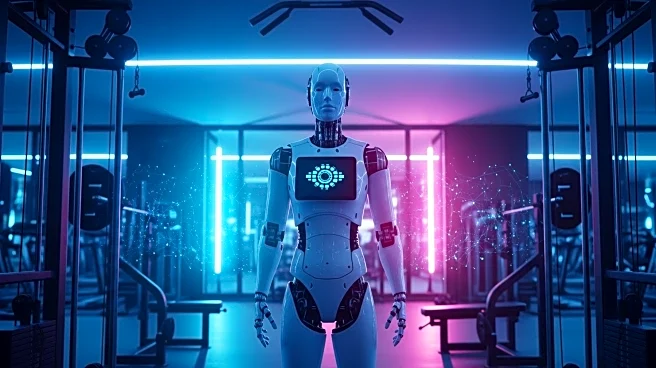What's Happening?
Rory McEntee, Chief Marketing Officer at GymNation, has publicly shared his decision to replace traditional creative agencies with AI solutions, citing improved results. This move underscores a growing trend among clients who prioritize outcomes, speed, and value over traditional agency relationships. McEntee's experience reflects a broader shift in client expectations, where agencies are no longer romanticized but are seen as service providers that must deliver tangible results. This development highlights the pressure on agencies to adapt to changing client needs and the increasing role of AI in marketing strategies.
Why It's Important?
The shift towards AI in marketing represents a significant change in the industry, impacting how agencies operate and deliver value. As clients like GymNation prioritize efficiency and measurable outcomes, agencies face the challenge of redefining their value propositions. This trend could lead to a reevaluation of agency-client relationships, with potential implications for agency business models and employment within the sector. The adoption of AI tools may also influence marketing strategies across various industries, pushing agencies to innovate and integrate technology to meet evolving client demands.
What's Next?
Agencies may need to reassess their service offerings and explore partnerships with AI providers to remain competitive. This could involve investing in AI technology or developing hybrid models that combine human creativity with AI efficiency. As more clients consider AI solutions, agencies might focus on enhancing their strategic advisory roles, providing insights that AI cannot. The industry could see increased collaboration between tech companies and marketing agencies, fostering innovation and new service models.
Beyond the Headlines
The integration of AI into marketing strategies raises ethical considerations, such as data privacy and the potential for bias in AI algorithms. Agencies must navigate these challenges while ensuring transparency and trust with clients. Additionally, the shift may influence the cultural dynamics within agencies, as teams adapt to new technologies and workflows. Long-term, this trend could redefine the role of creativity in marketing, balancing human insight with AI-driven analytics.








